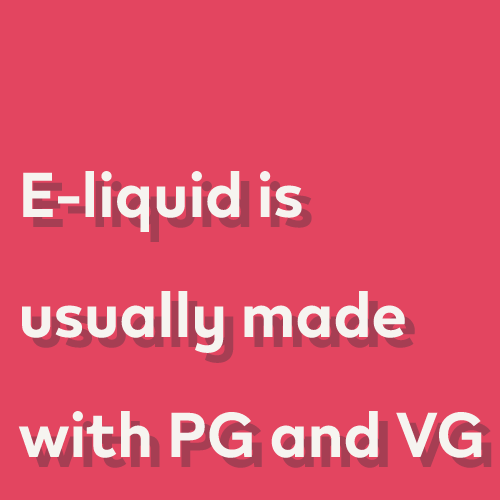E-liquid is an essential part of using an e-cigarette. It is the liquid used in e-cigarettes or vaping devices. When the e-liquid is heated, it produces an aerosol, also commonly referred to as vapour. E-liquid is often flavoured and may contain nicotine, which is addictive, as well as Propylene Glycol (PG) and Vegetable Glycerin (VG).
The combination of these ingredients varies on a product-by-product basis. All the ingredients and their quantities are usually clearly stated on the pack, so you can check this information.
As more e-liquids have become available on the market for adult vapers to choose from it can be a complex consideration for e-cigarette adult users. You should always check that the e-liquid you choose is made by legitimate manufacturers so that it adheres to safety standards.
Pairing the e-liquid with your e-cigarette device is crucial for having an optimal vaping experience. Vaping is not risk-free and many e-cigarettes provide nicotine, which is addictive. Smoke-free products are intended for use by adults who would otherwise continue to smoke or use nicotine products and are not intended as cessation devices.
The best option to reduce the health risks associated with the use of tobacco and nicotine products is to quit tobacco and nicotine use altogether. Adult vapers looking for a simple way to approach the selection of e-liquids may explore pod-based vape systems, where e-liquid comes pre-filled in capsules that are designed specifically to be used with the e-cigarette.
Refilling e-liquid into pod-based vape systems is easy as it only requires changing the pod. Some vapers prefer to mix liquids and use e-liquid calculators.
Can vape liquid be made without PG and VG?
E-liquid for vaping is most usually made with PG and VG, though other compounds can also act as aerosol formers. PG (Propylene Glycol) and VG (Vegetable Glycerin) are the most common ingredients to form the e-liquid base, which is an essential component in all e-liquids for vaping. Nicotine and flavourings are added to the e-liquid base.
How is nicotine measured in e-liquid?
Nicotine in e-liquid is typically measured in mg/ml, with bottles or packaging commonly indicating the amount of nicotine there is, in relation to the total amount of e-liquid in the bottle. Nicotine is addictive.
Children and adolescents should never use nicotine-containing products under any circumstances. Nicotine-containing products should not be used by people who have or are at risk of heart disease, are diabetic, or are epileptic. Nicotine-containing products should not be used during pregnancy or while breastfeeding.
How are flavours added to e-liquid?
Flavourings are added to e-liquid and are subject to safety standards. They are usually specifically designed to be added to a PG and VG base with nicotine to create e-liquid. Often, flavourings are ready-mixed to be directly added to unflavored e-liquid.
Ready-made e-liquid will have flavourings already mixed in, such as in pre-filled pods, meaning there is no need to add additional flavour.
Should I avoid mixing my own e-liquid?
One can find a lot of information online about DIY e-liquid or how to make vape liquid, but following this information is not advised. All aspects of vaping, such as the e-cigarette itself and the e-liquids used, are complex considerations that work best when designed by regulated companies that should be following safety standards when making the e-liquid.
Pod-based vaping systems provide a wide range of tobacco flavours to choose from. The pods come pre-filled with e-liquid that has been specifically designed to work with the vaping device.
Especially for those adults who have recently switched from smoking to vaping, it is easier to use ready-made e-liquid by a reputable brand, made to be paired with specific branded devices or vaping kits.
This article is for general information and educational purposes. Some of the information in this article is based on external, third-party sources and we make no representations or warranties of any kind regarding the accuracy, validity or completeness of such information.

